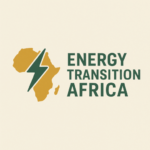In 2025, as Europe scrambles to meet its climate goals and reduce dependence on Russian energy, a new frontier has emerged in the global race for clean power: Africa.
Last month, Egypt and Greece reaffirmed their commitment to the massive 3,000 MW undersea cable project that will transmit renewable electricity from North Africa to the European grid. Backed by the European Union, this project, known as the GREGY interconnector, has been touted as a symbol of North-South collaboration in the fight against climate change. But it’s also raising a controversial question:
Can Africa afford to export clean power it hasn’t even accessed?
According to the International Energy Agency (IEA), over 600 million people in sub-Saharan Africa still lack access to electricity. In Nigeria alone, more than 90 million citizens live in the dark, relying on polluting generators and wood-based fuels. While energy deals like GREGY are lauded in Brussels and Athens, they provoke growing outrage in Lagos, Nairobi, and Kinshasa.
“This is green colonialism—Africa supplies the energy, Europe reaps the benefits,” says Aisha Okoro, an energy justice activist based in Abuja.
The phenomenon is not isolated. Similar conversations are unfolding around Morocco’s Xlinks project to the UK, where solar and wind power generated in North Africa will be exported to England via a 3,800 km subsea cable. While Europe is investing billions to secure African renewables, African communities still struggle to electrify their schools, clinics, and homes.
The New Face of Energy Colonialism?
Critics argue that these mega-deals echo the extractive relationships of the past—where raw materials were taken from Africa to fuel European industrialization. Only now, it’s sunlight and wind being harvested, not gold or oil.
“Africa is once again being positioned as a supplier of raw energy,” says Dr. Sefu Moyo, a pan-African policy researcher. “Except this time, we don’t even get to use it first.”
The irony is glaring: the continent with the world’s lowest carbon emissions is being tasked with powering the climate transition of the very regions responsible for historic greenhouse gas pollution.
Who Benefits—and Who Decides?
Supporters of the projects argue that these deals will bring infrastructure, foreign investment, and jobs. Egypt’s Minister of Electricity, Mohamed Shaker, has described the GREGY cable as a “strategic opportunity for energy cooperation and stability” (AP News).
But local energy experts caution against unequal terms.
“Yes, there’s investment—but at what cost? These power lines are skipping over entire communities that have never seen a stable light bulb,” says Brenda Tumu, a Kenyan renewable energy consultant. “We need power for production, not just extraction.”
In many cases, local communities are excluded from planning processes, with limited understanding of how, or if, they will benefit.
What Justice in Energy Should Look Like
A truly just energy transition must ensure that Africa’s renewable resources serve African development first.
Prioritizing energy access at the local level would improve health and education outcomes, stimulate micro-enterprises, create jobs, and enhance climate resilience. Distributed renewable solutions—such as solar mini-grids and clean cooking technologies—should be scaled up alongside any export infrastructure.
Civil society actors are calling for greater transparency, community consultation, and regional power pooling that prioritizes African demand before exports.
“We’re not against cooperation,” notes Okoro. “But it must be equitable. Power Africa—don’t just power Europe.”
What Can Be Done?
- Regional Collaboration: African countries must adopt unified negotiation strategies with external partners to avoid fragmented deals.
- Domestic Targets First: Set and enforce national electrification benchmarks before approving large-scale exports.
- Community Ownership Models: Allow affected communities to co-own and profit from projects.
- Civil Society Oversight: Include NGOs and watchdogs in power sector planning and investment decisions.
Final Thoughts
The GREGY cable may light up Europe, but it casts a long shadow over Africa’s energy sovereignty. If African nations are to leapfrog into a clean, just, and equitable future, they must resist repeating history—and demand more from the deals being signed in their name.
Power without justice is exploitation—clean or not.
💬 What do you think?
Should Africa export power before electrifying itself? Drop your thoughts in the comments or share this post with your network.
🡒 Read next: Natural Gas in Africa: Bridge Fuel or Obstacle to Clean Energy?

